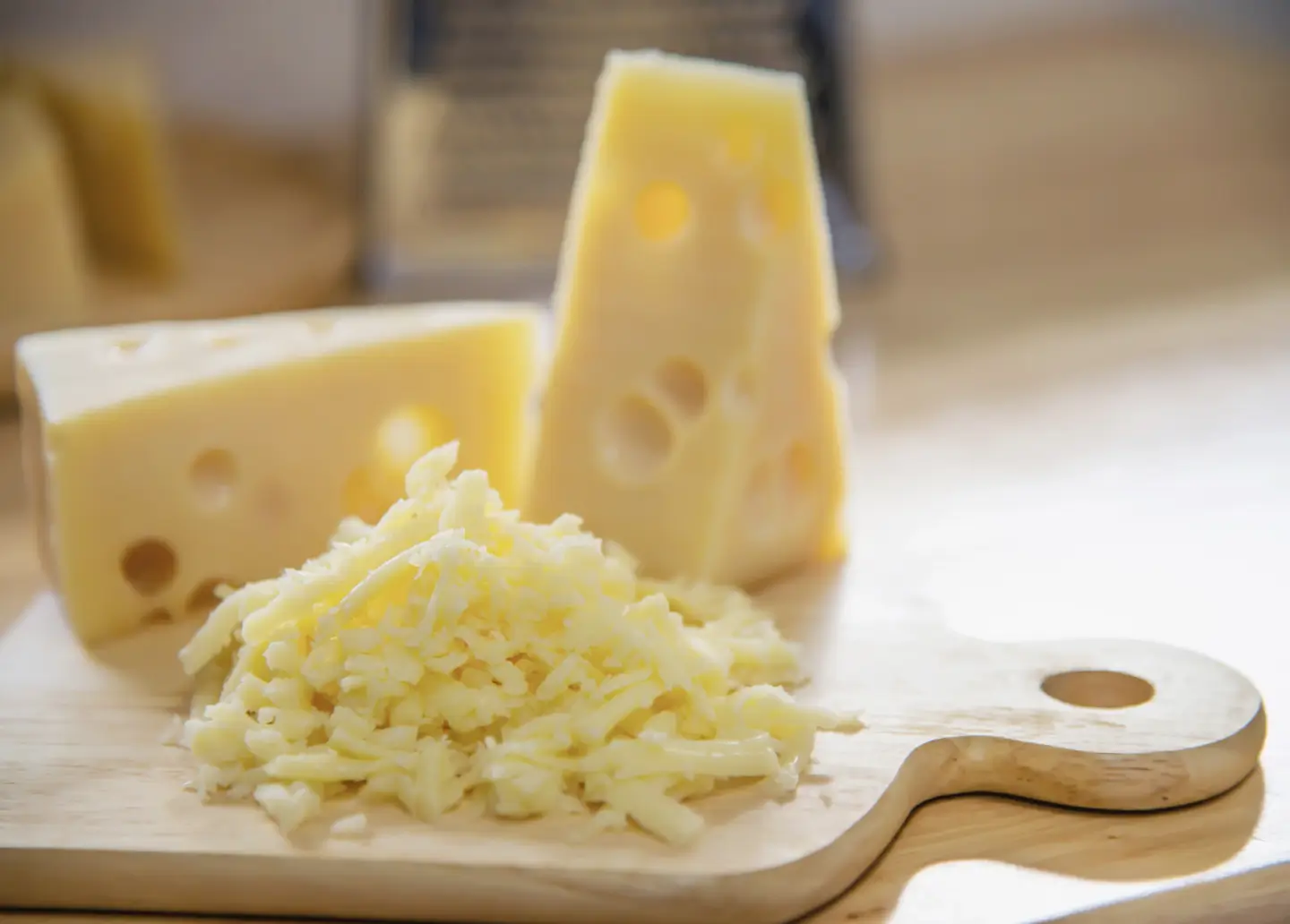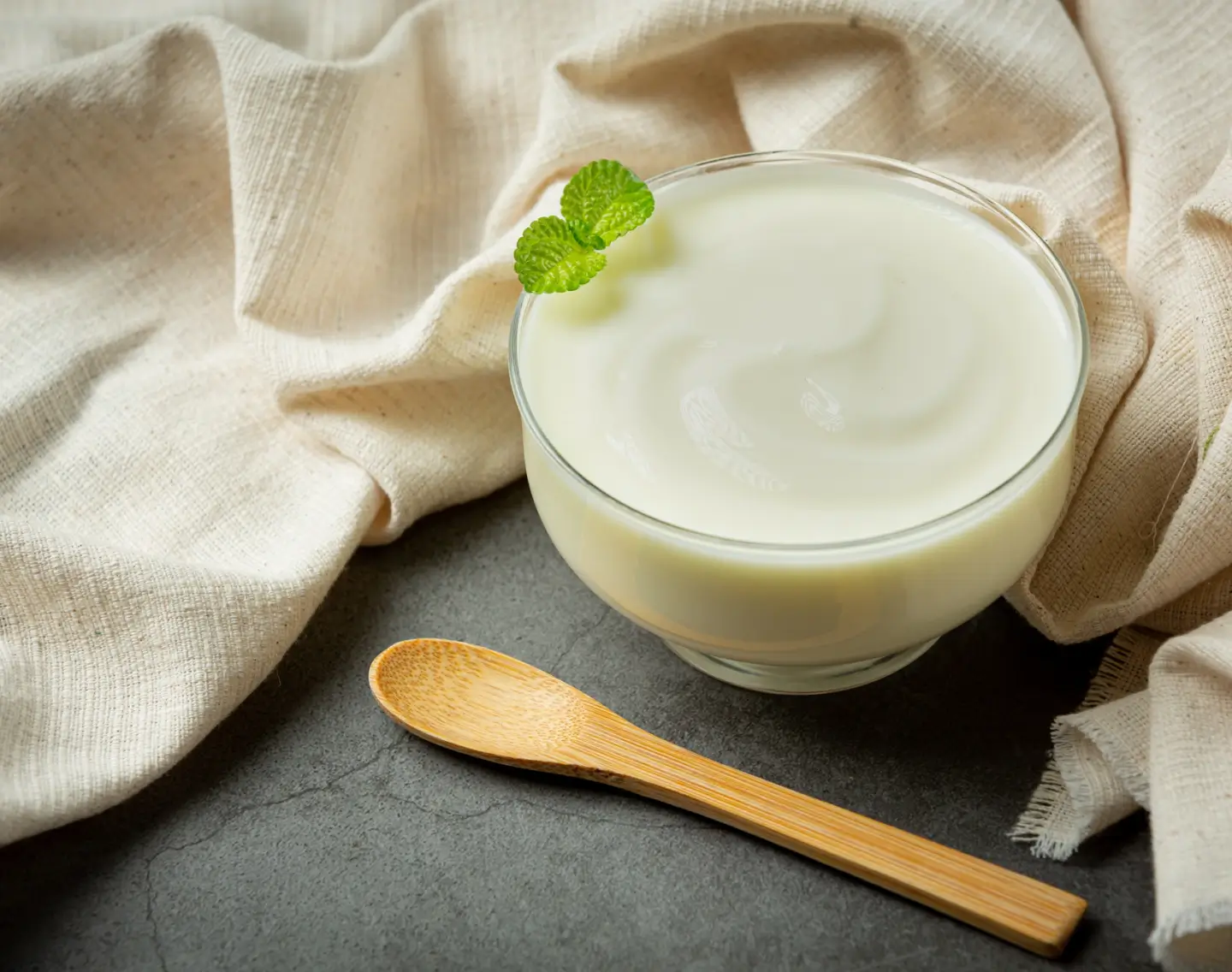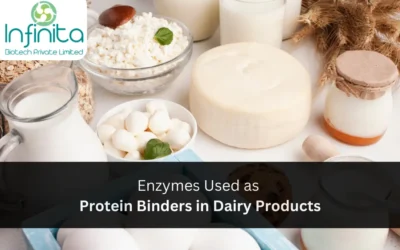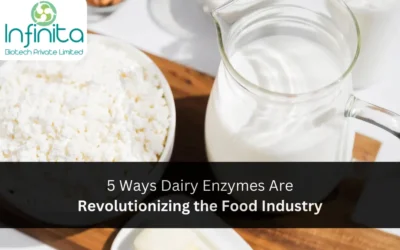In the dairy industry, enzymes play a crucial role in the production of various products. One of the applications of enzymes is their use as protein binders in dairy products. Enzymes are natural proteins that act as catalysts, speeding up chemical reactions within a...
Dairy Enzyme Manufacturers in India
What are Dairy Enzymes?
The dairy industry is the traditional user of enzymes for the production and improvement of cheese, yogurt, and other milk products. Enzymes have been used for cheese production since 5000 B.C. Enzymes are natural proteins that act as a biocatalyst to cause the desired reaction. Enzymes have a specific function. In the dairy industry, enzymes are used for a range of functions from coagulants to cheese ripening, to improve the solubility and taste of dairy products, and application of bioprotective enzymes to increase the shelf life and safety of products.
The most popular dairy enzyme preparation is rennet which clots milk by removing a highly charged peptide fragment from kappa-casein on the surface of micellar casein, a major form of milk protein. Destabilized casein micelles aggregate and form the structure of the milk clot, which is then acidified by lactic cultures to make cheese curd. Apart from using milk-clotting enzymes to make cheese, the dairy industry processes also make use of non-coagulant proteases, lipases, aminopeptidases, carboxypeptidases, lysozyme, lactase, and lactoperoxidase for various applications including debittering and flavour generation in protein hydrolysates as well as the production of enzyme-mediated cheeses.
India, being one of the leading lactase enzyme manufacturers, has played a significant role in meeting the growing demand for lactose-free milk products. Lactase, an essential enzyme produced by lactase enzyme manufacturers, plays a crucial role in the dairy industry by breaking down lactose, the natural sugar found in milk. This enzymatic process enables lactose manufacturers to produce lactose-free milk, catering to individuals with lactose intolerance. Lactase manufacturers in India have contributed to the development of specialized enzymes that efficiently hydrolyze lactose, ensuring the production of high-quality lactose-free milk. Furthermore, protease enzyme manufacturers have also played a vital role in the dairy industry by providing enzymes that aid in protein hydrolysis, debittering, and flavor generation in protein hydrolysates. These innovative enzymatic solutions have revolutionized the production of enzyme-mediated cheeses, enhancing their flavor profiles and overall quality. The collaboration between lactase enzyme manufacturers, lactose manufacturers, and protease enzyme manufacturers continues to drive advancements in the dairy industry, meeting the evolving consumer demands for lactose-free milk products and ensuring the availability of a diverse range of high-quality dairy options.

Our Solutions

Lactase
Enzyme to degrade lactose and used for the production of value-added dairy products like ice cream.Lactose-Free Milk Products
Improved Scoopability
Pleasant Mouthfeel
Lipase
Enzyme to hydrolyse milk-based fat globules. Extensively used for speciality Italian cheeses.Enhances Flavor
Accelerated Ripening
Suitable for Italian Cheeses


Transglutaminase
Enzymatic binding agent to improve texture and final yield in cheese and yoghurt.Improves Texture
Thickens Dairy Intermediates
Reduced Serum Formation
Rennet
Our microbial rennet enzyme thickens the milk in the process of cheese making.Consistent Cheese Quality
Improves Texture and Flavor
Accelerates Cheese Ripening Process

Related Blogs & Insights
5 Ways Dairy Enzymes Are Revolutionizing the Food Industry
Dairy enzymes are making a significant impact on the food industry, transforming the way we produce and consume dairy products. These powerful enzymes play a crucial role in various stages of food manufacturing, from enhancing food quality and shelf life to reducing...
What Type of Enzyme is Lactase?
Curious about lactase and its vital role in our digestion? This article delves into lactase’s nature, its function in breaking down lactose (milk sugar), its production in our bodies, lactase deficiency, and other aspects of lactase and lactose intolerance. ...
Frequently Asked Questions ,Dairy Enzymes
Which enzymes are used in Dairy?
Where is transglutaminase produced?
Which enzyme degrade lactose present in the milk?
Which enzymes are used in cheese processing?
What is the role of Transglutaminase Enzyme?
For A Greener Tomorrow
Committed to advancing eco-friendly biotechnology for a healthier planet.


